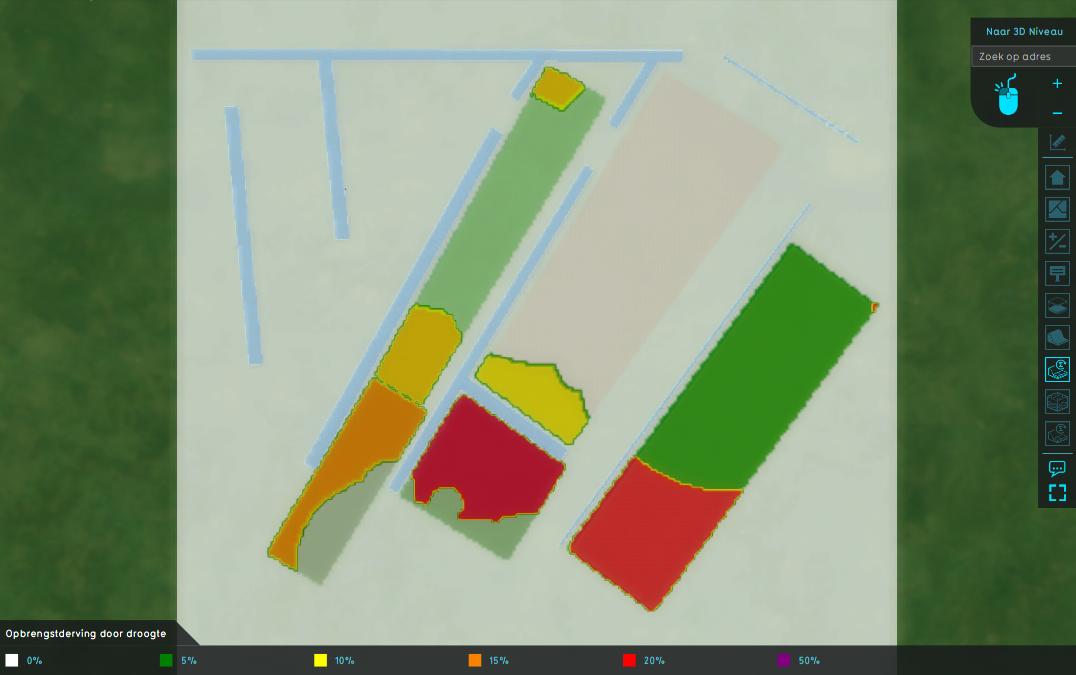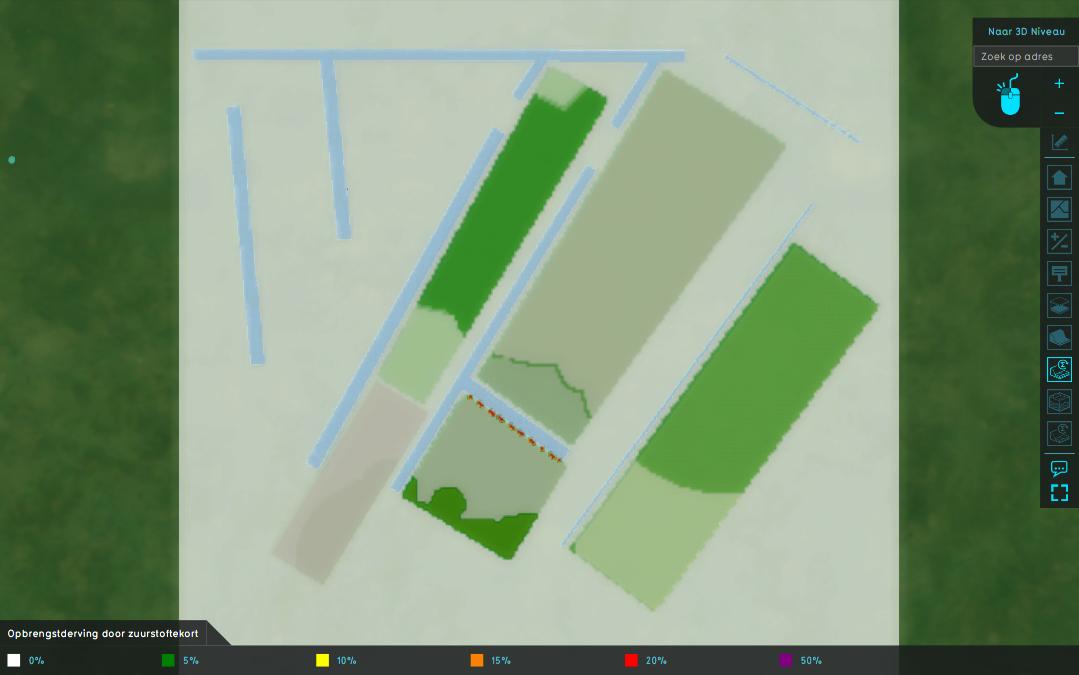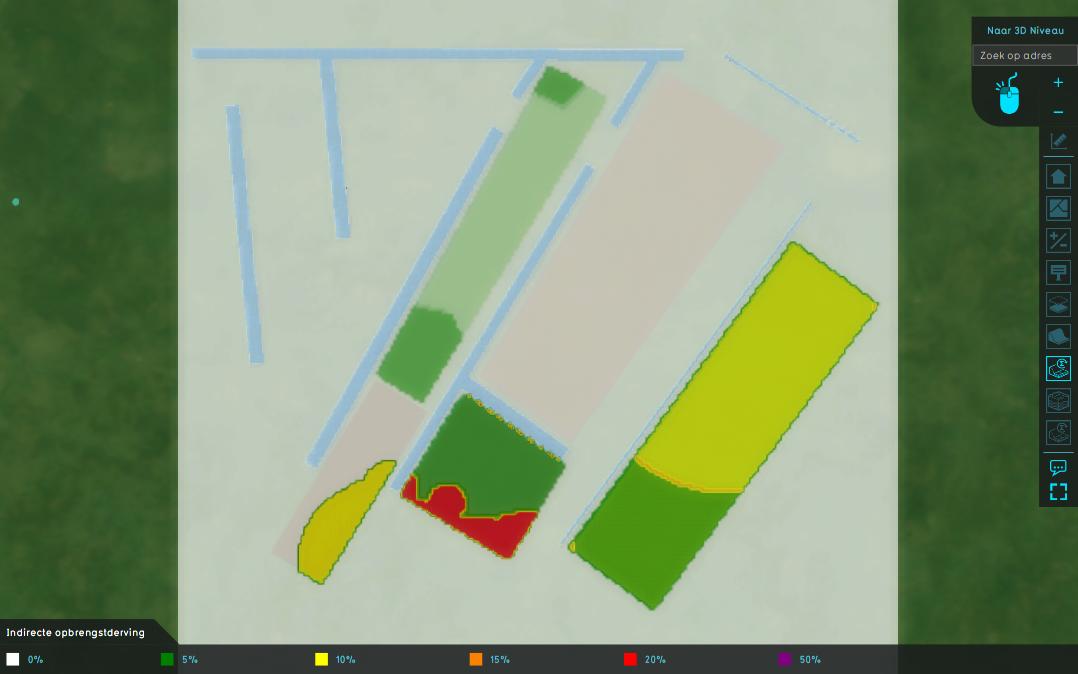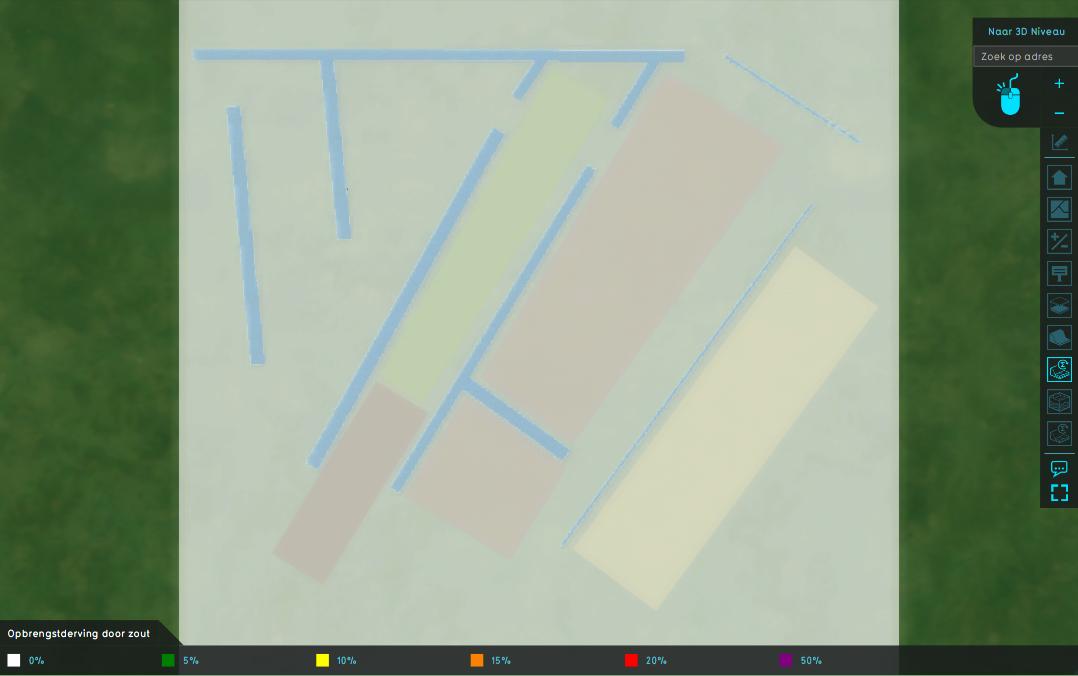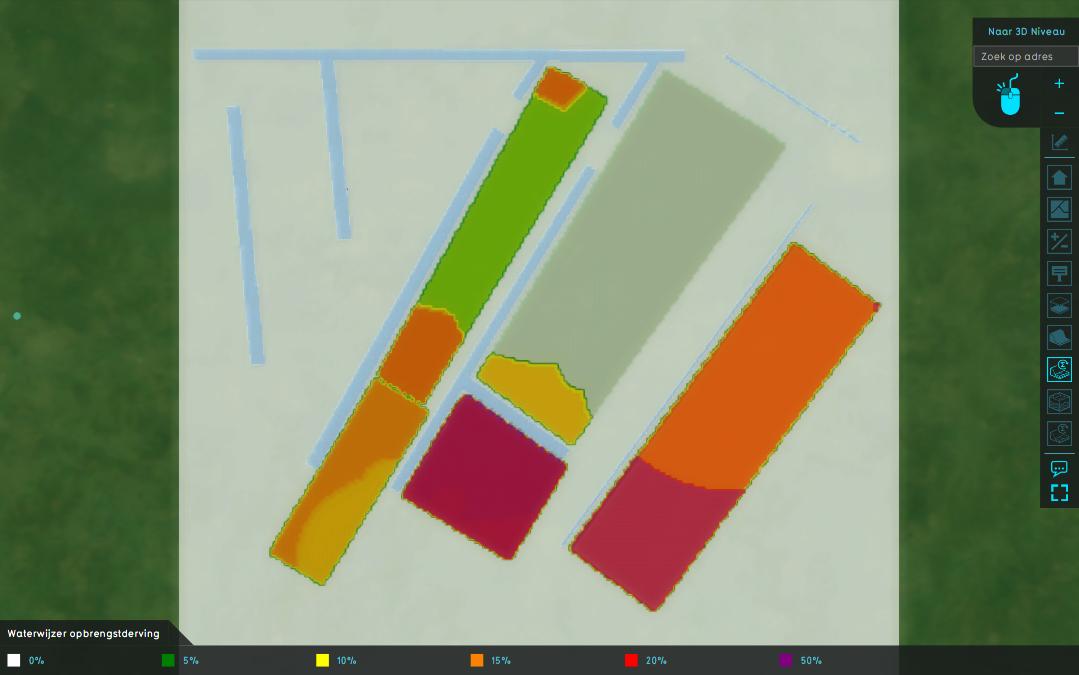Waterwijzer Overlay: Difference between revisions
Jump to navigation
Jump to search
m (→How-to's) |
m (→How-to's) |
||
| Line 39: | Line 39: | ||
==How-to's== | ==How-to's== | ||
* [[How to add and remove an Overlay]] | * [[How to add and remove an Overlay]] | ||
* [[How to edit | * [[How to edit an overlay legend]] | ||
* [[How to add the Waterwijzer Overlay]] | * [[How to add the Waterwijzer Overlay]] | ||
* [[How to configure the Waterwijzer Overlay to use groundwater results from other calculations]] | * [[How to configure the Waterwijzer Overlay to use groundwater results from other calculations]] | ||
Revision as of 06:25, 16 July 2020
The waterwijzer overlay provides the loss of earnings of crops based several input parameters. These loss of earnings are currently calculated by the Waterwijzer Landbouw module, which is described here.
Usage
The Waterwijzer Overlay results can be used to:
- Calculate the loss of earnings based on existing crops for currently known highest and lowest ground water levels.
- Calculate the loss of earnings for crops when using different ground water level management strategies simulated by a Ground Water Overlay or a Subsidence Overlay.
- Determine the best type of crop per parcel given the highest and lowest ground water levels and type of soil.
Considerations
The Waterwijzer Overlay calculates loss of earnings for agriculture crops based on:
- A climate scenario;
- A weather station;
- Type of soil;
- Type of crop;
- Highest and lowest (averaged) ground water levels;
- The irrigation parameter, which in the Waterwijzer tool is active for a number of the crop types, is currently not taken into account.
Module
A Waterwijzer Overlay can be configured by opening the Waterwijzer Overlay Wizard. More in-depth information can be found under each of the categories below.
Result types
The overlay offers the following result types, each storing the agricultural loss of earnings in percentage. The categories are:
- Dry: low water levels cause crops to dry out;
- Wet: high water levels cause crops' roots to suffocate;
- Indirect: Indirect causes, related to combinations of crop, soil, weather and water levels
- Salt: salt water irrigation causes damage to crops;
- Total: the sum of the previous four categories.
How-to's
- How to add and remove an Overlay
- How to edit an overlay legend
- How to add the Waterwijzer Overlay
- How to configure the Waterwijzer Overlay to use groundwater results from other calculations





